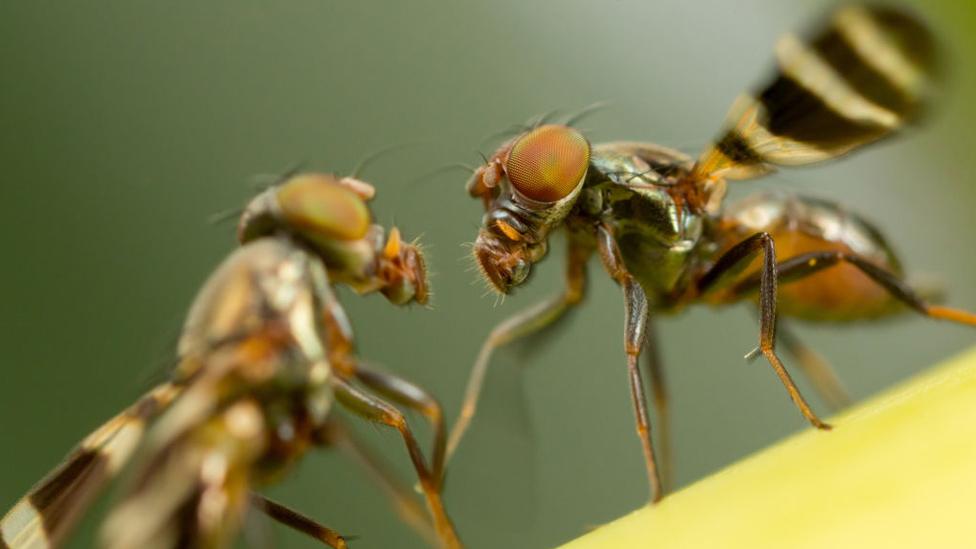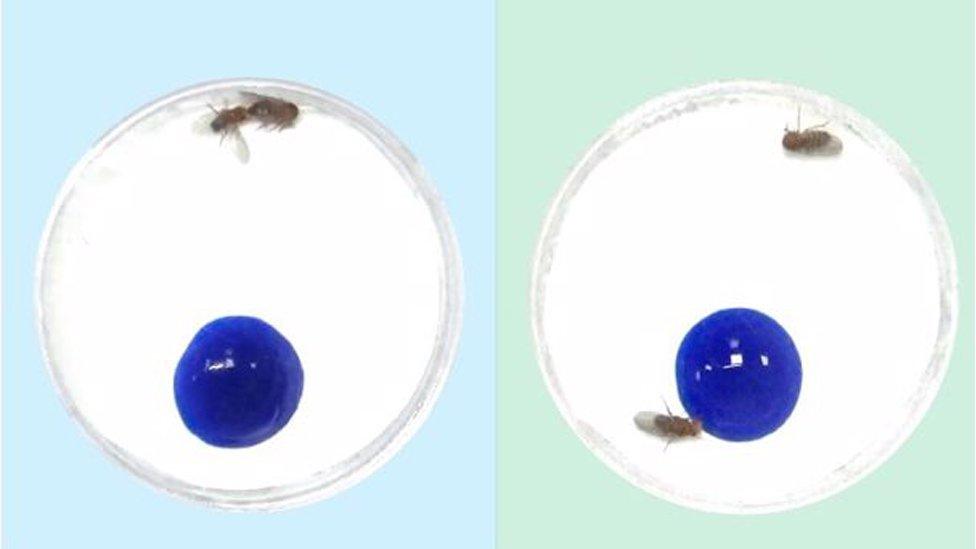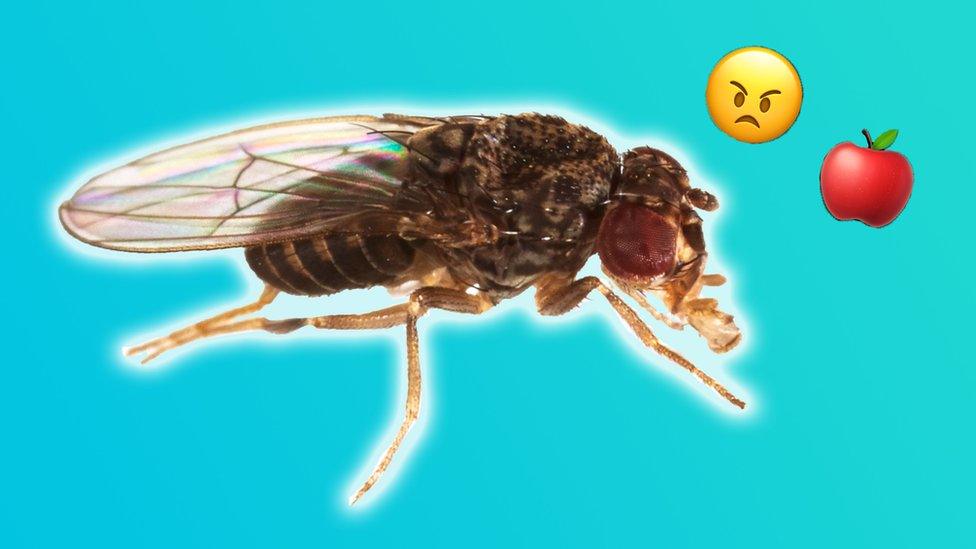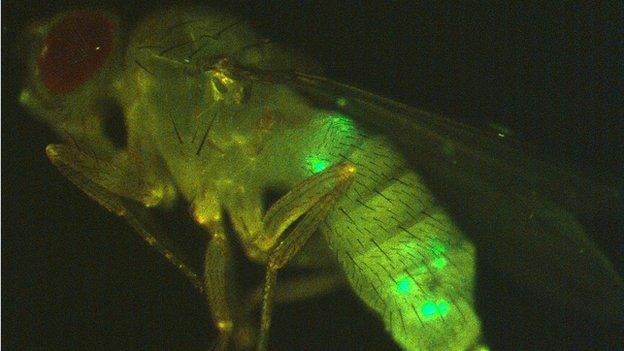Can fruit flies help us to understand Alzheimer's disease better?
- Published

Fruit flies, or Drosophila, are commonly used in neuroscience research
Sex or Food? The eternal question.
For animals out there the choice between food or sex is a pretty fundamental one - you have to eat to live and you have to reproduce to survive.
But how do animals make that choice? And what does it reveal about our own brains?
To find out researchers at the University of Birmingham have been putting a collection of fruit flies through their paces.
Male fruit flies were deprived of female company and of food and then let loose to see which they would seek out first. It seems the choice to eat food wins over sex with the tipping point occurring after 15 hours of starvation.
However the choice also depends on other factors like the quality of the food on offer. And after eating, the males would then move on to sex, often within a few seconds.
Fruit flies are interesting to study as they do demonstrate memory and learning, but have a fairly simple brain of about 100,000 neurones. You on the other hand have about 86 billion inside your skull.

The fruit fly on the left quickly moved on from food to mating, while the one on the right prioritises food
The scientists were able to see inside the heads of the flies and observe exactly which neurones were involved in these decisions. Understanding the rules governing the choices a fruit fly makes can provide insight into much more complex brains like our own.
Eventually this research may help us understand diseases where decision making is impaired in the human brain like Alzheimer's.
Next for the flies though more complex choices. Sex, food or avoiding a predator? Lunch or be lunch or die happy?

Follow BBC West Midlands on Facebook, external, Twitter, external and Instagram, external. Send your story ideas to: newsonline.westmidlands@bbc.co.uk, external
Related topics
- Published7 June 2021

- Published28 November 2013

